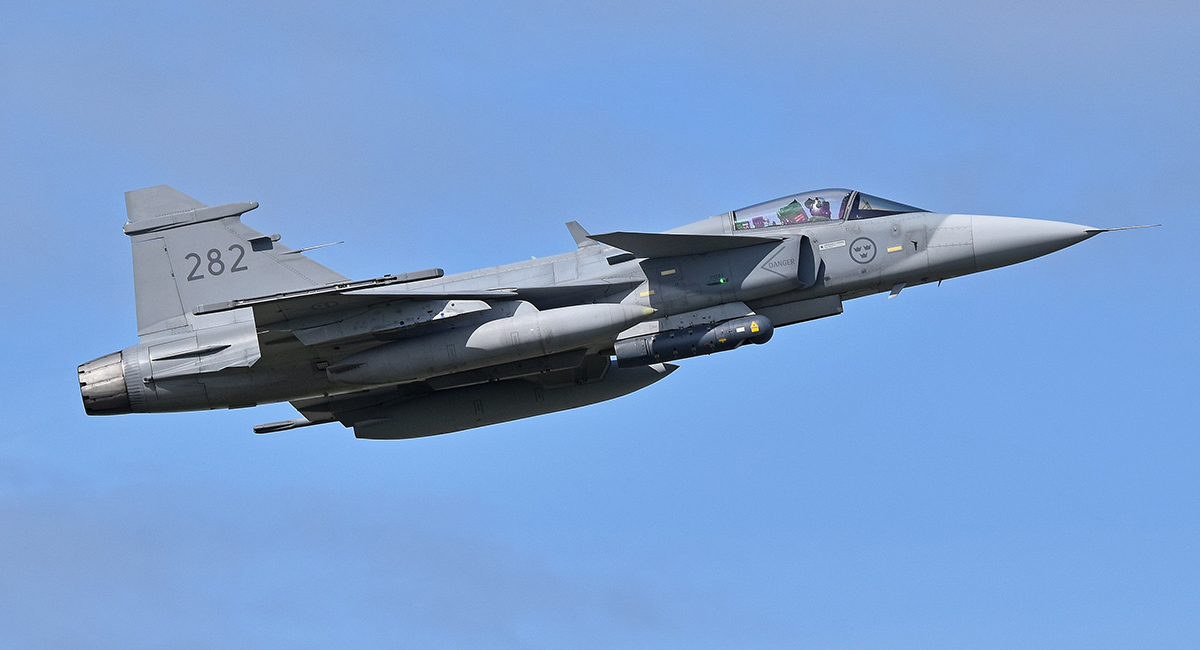Hungary’s dilatory approval of Sweden’s bid to join NATO brought much relief and high-fiving at alliance headquarters in Brussels. It took much diplomatic bribing of the pro-Russian Viktor Orban government in Hungary (as it did the ambivalent Recep Tayyip Erdogan government in Turkey) to get the unanimous vote of alliance countries to bring in another new member. To close the deal, Swedish prime minister Ulf Kristersson had to make a pilgrimage to Budapest bearing gifts—four Swedish-made Gripen fighter jets and a promise by Saab, the aircraft producer, to open an artificial intelligence research center in Hungary. The New York Times concluded that Hungary’s approval of Sweden’s accession sealed “a major shift in the balance of power between the West and Russia set off by war in Ukraine.” And the strutting and flexing within the alliance already seems to have started.
Sweden’s geography does provide several advantages for NATO vis-à-vis Russia. Swedish territory includes Gotland Island, which helps control entry to and exit from the Baltic Sea. With Finland and Sweden in the alliance, it will be easier to bottle up the Russian Navy inside the Baltic and prevent its breakout into the Atlantic Ocean. Because Russia’s nearby Kola Peninsula is home to two-thirds of Russia’s second-strike nuclear deterrent, Swedish territory also makes a great outpost to spy on developments. Finally, in any NATO conflict with Russia, reinforcing NATO’s Baltic countries of Latvia, Lithuania, and Estonia would be more accessible from Sweden.
Of course, because of its essential geography, Stockholm had received quiet defense guarantees from Washington even before accession. However, the perception that the formal accession of Finland and Sweden into the alliance alters the balance of power in Europe vis-à-vis Russia has a significant downside, starting almost immediately.
A significant disadvantage of alliances—outside of the potential for freeriding —is that with the security guarantee of the leader, less powerful countries gain confidence to pursue riskier strategies. The danger of this phenomenon is illustrated by the recent loose talk from some of Europe’s leaders, who met in Paris about sending their troops to Ukraine. French president Emmanuel Macron has always been more favorable to European-driven military action. He publicly announced last month that he would not rule out the dangerously escalatory step of deploying European troops to Ukraine. Although he emphasized that no consensus was reached among the European countries—“in an official, approved, and endorsed way”—he also asserted that “anything is possible if it is useful to reach our goal,” which he argued was to guarantee that “Russia cannot win this war.”
The Biden administration should temper any indications of a growing resolve among European nations to intervene directly in Ukraine. To date, although the United States military aid to Ukraine vastly exceeds the combined sum provided by the Europeans, the Biden administration has exercised appropriate caution on actions that could escalate the war into a direct conflict with nuclear-armed Russia.
As the eruption of World War I teaches us, alliances can drag countries into catastrophic wars that nobody wants. Today, this caution is especially required given NATO’s Article V security guarantee, which considers an attack on one member as an attack on all. As the North Atlantic Treaty stipulates:
...[A]n armed attack against one or more of them in Europe or North America shall be considered an attack against them all and consequently they agree that, if such an armed attack occurs, each of them, in exercise of the right of individual or collective self-defence recognized by Article 51 of the Charter of the United Nations, will assist the Party or Parties so attacked by taking forthwith, individually and in concert with the other Parties, such action as it deems necessary, including the use of armed force, to restore and maintain the security of the North Atlantic area.
Smaller alliance members spooked about Russia’s recent limited gains in the Ukraine war and encouraged by the perceived positive shift in the NATO-Russia balance with Sweden’s entry could very well entangle the United States in an escalation with the United States and Russian nuclear forces squaring off. Thus, President Biden needs to squash such brash and unwise talk among its ever-growing number of security clients in Europe.

















